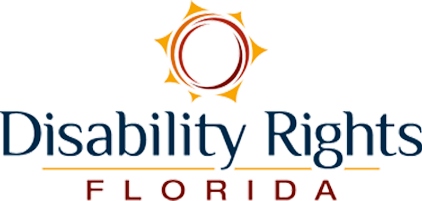Americans with Disabilities Act (ADA)
Enacted in 1990, the ADA guarantees people with disabilities civil rights protections in employment, public accommodations, government services and telecommunications. Title II of the ADA covers public programs, activities and services such as the Division of Vocational Rehabilitation and the Division of Blind Services. Most requirements of Title II are based on Section 504 of the Rehabilitation Act of 1973, which prohibits discrimination based on disability in federally assisted programs and activities. The ADA then extended Section 504’s non-discrimination requirement to all activities of public entities – such as the State of Florida – and not only those receiving federal funds.
Agency for Persons with Disabilities (APD)
APD is the Florida state agency that administers the state and federal funds provided to individuals with developmental disabilities.
Assistive Technology
Any item, equipment, or product system, whether bought off the shelf, modified or custom built, that is used to increase, maintain, or improve functional capabilities of a student with a disability.
Augmentative/Alternative Communication Systems (AAC)
Systems of communication, such as communication boards, that can help with writing, spelling, typing, word selection, conversation, speech synthesis, manual reading or other communication needs resulting from a disability.
Department of Children & Families (DCF)
DCF is the Florida state agency that administers the child welfare system, along with some mental health and substance abuse programs for children and youth. DCF also determines eligibility for welfare programs such as Medicaid, food stamps and Temporary Assistance for Needy Families.
Disability
A physical or mental impairment that substantially limits one or more major life activities.
Due Process Rights
Rights that give youth, caregivers, school or agency personnel ways to solve problems and settle disagreements. In the education setting, they include the right to participation, the right to have notice, the right to give consent and the right to a due process hearing. The hearing is a formal meeting run by an impartial hearing officer, where parents, caregivers and school officials can resolve disagreements fairly.
Early and Periodic Screening, Diagnosis and Treatment (EPSDT).
Comprehensive health services for Medicaid-eligible children – up to age 21. It includes routine medical check-ups, as well as treatment for illness, injury and chronic medical conditions. Almost all youth in the dependency system are eligible for Medicaid. Young adults who exit the foster care system at age 18 remain eligible for Medicaid up to age 21. Florida also calls this the “Child Health Check Up”.
Exceptional Student Education (ESE)
In Florida, special education services and programs for students who have a disability or who are gifted.
Family Educational Rights and Privacy Act (FERPA)
The Family Educational Rights and Privacy Act (20 U.S.C. § 1232g; 34 CFR Part 99) is a Federal law that protects the privacy of student education records. The law applies to all schools that receive funds under an applicable program of the U.S. Department of Education.
504 Plan
An individualized plan for a student with a disability who may not meet the eligibility criteria for Exceptional Student Education (ESE), but who requires accommodations under Section 504 of the Rehabilitation Act of 1973.
Free Appropriate Public Education (FAPE)
A federal regulation (34 CFR 300.17) specifying that all children with disabilities aged 3 through 21, including children with disabilities who have been suspended or expelled from school, are entitled to a free and appropriate public education. Districts must provide FAPE to all students with disabilities who have not reached age 22 and have not earned a regular high school diploma.
Independent Living (IL)
This term is used generally to describe services provided to youth who will exit the foster care system at age 18. It is also used to refer to specific programs available to young adults such as the Road to Independence program.
Individualized Education Program / Individualized Education Plan (IEP)
A written plan to identify the specially designed instruction and related services designed to meet the individual unique needs of a student with a disability. The IEP is developed by the student , LEA, and his or her teachers, parents, caregivers and others as appropriate. It is reviewed annually, but may be revised at any time, upon request.
Individualized Plan for Employment (IPE)
A vocational rehabilitation plan that targets a specific job goal and services that are necessary in order to reach the goal. The plan can be amended at any time and should be reviewed annually.
Least Restrictive Environment (LRE)
Placement of a student with disabilities in a regular education class with their non-disabled peers or in a special program for the amount of time that is appropriate for the child. Taking a child out of a regular school setting should only be done when the nature and severity of the disability is such that education in regular classes with supplementary aids and services cannot be achieved satisfactorily.
